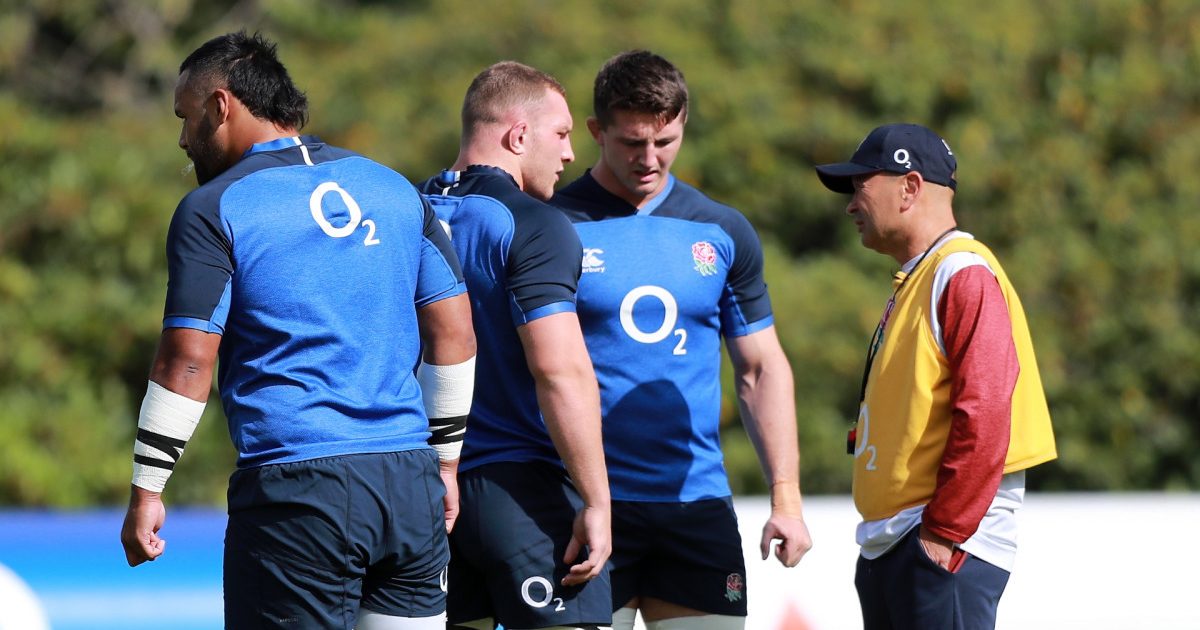England explain why they have reverted to World Cup back row and kept Ford in reserve

Eddie Jones has explained his team selection for Saturday’s Autumn Nations Cup clash with Ireland, the head coach deciding to recall Tom Curry and Sam Underhill to partner Billy Vunipola in the England back row.
The trio emerged as Jones’ first choice back row during last year’s run to the World Cup final in Japan and having helped England win the 2020 Six Nations title, they are reunited after Jones last weekend opted to go with a back row of Maro Itoje, Jack Willis and Vunipola in the 40-0 win over Georgia.
“We feel that is our strongest back row for this game, playing against Ireland who are the strongest poaching team in the world, the No1 poaching team in Europe,” said Jones. “We need an aggressive, low to the ground back row and Sam Underhill and Tom Curry are outstanding in that area.”
The recall of Curry and Underhill were just two of the four changes made to the England pack. Props Mako Vunipola and Kyle Sinckler have also been selected to start, but Jones resisted the temptation to tinker with his backline even though fit-again George Ford is now available.
“We didn’t think he was quite ready to start,” explained Jones about his decision to only choose Ford for the bench. “He has only done two sessions with us so we felt he needs some more but certainly off the bench he will be very handy for us.
TEAM NEWS:
George Ford is on the bench as England name to face Ireland. #ENGvIRE https://t.co/j8qsVDnSbj
— RugbyPass (@RugbyPass) November 19, 2020
“He is a very, very talented No10. He has been a mainstay of our team. He has played 69 Tests and for him to come on in the last part of the game and add his tactical nous, his tactical kicking, his goal-kicking if needed and his distribution skills are going to be very handy for us.”
Having defeated Italy and Georgia in recent weeks, Jones declared there was an added energy around his squad this week knowing they will be facing a step-up in challenge versus Ireland.
“Our intensity is always pretty good but definitely there is a bit more edge around the place. All the guys know Ireland is a very tough team. Eighteen months ago they were ranked No1 in the world so it shows you the class and the ability of this team and we know we have got to be at our best to get the result we want to get.
“They are a very well-coached team. I know Andy Farrell very well. They will be well prepared and they will come to Twickenham with a point to prove which always makes them dangerous. It’s the most important game of the year for us and I am sure for them they are treating it exactly the same way. It’s a huge step-up from what we have encountered in the last couple of games.”
RugbyPass Offload – Episode 7 – Corbs & Co
Great to have @AlexCorbs join us this week to chat Ireland v England, Lions Tours, Tinder dates, Giltinis and his battle to overcome cancer💪
iTunes – https://t.co/6wLxuVLfxw
Spotify – https://t.co/XhUN2XigYC#RPOffload pic.twitter.com/FL5bxSe8Vd— RugbyPass (@RugbyPass) November 18, 2020
























































